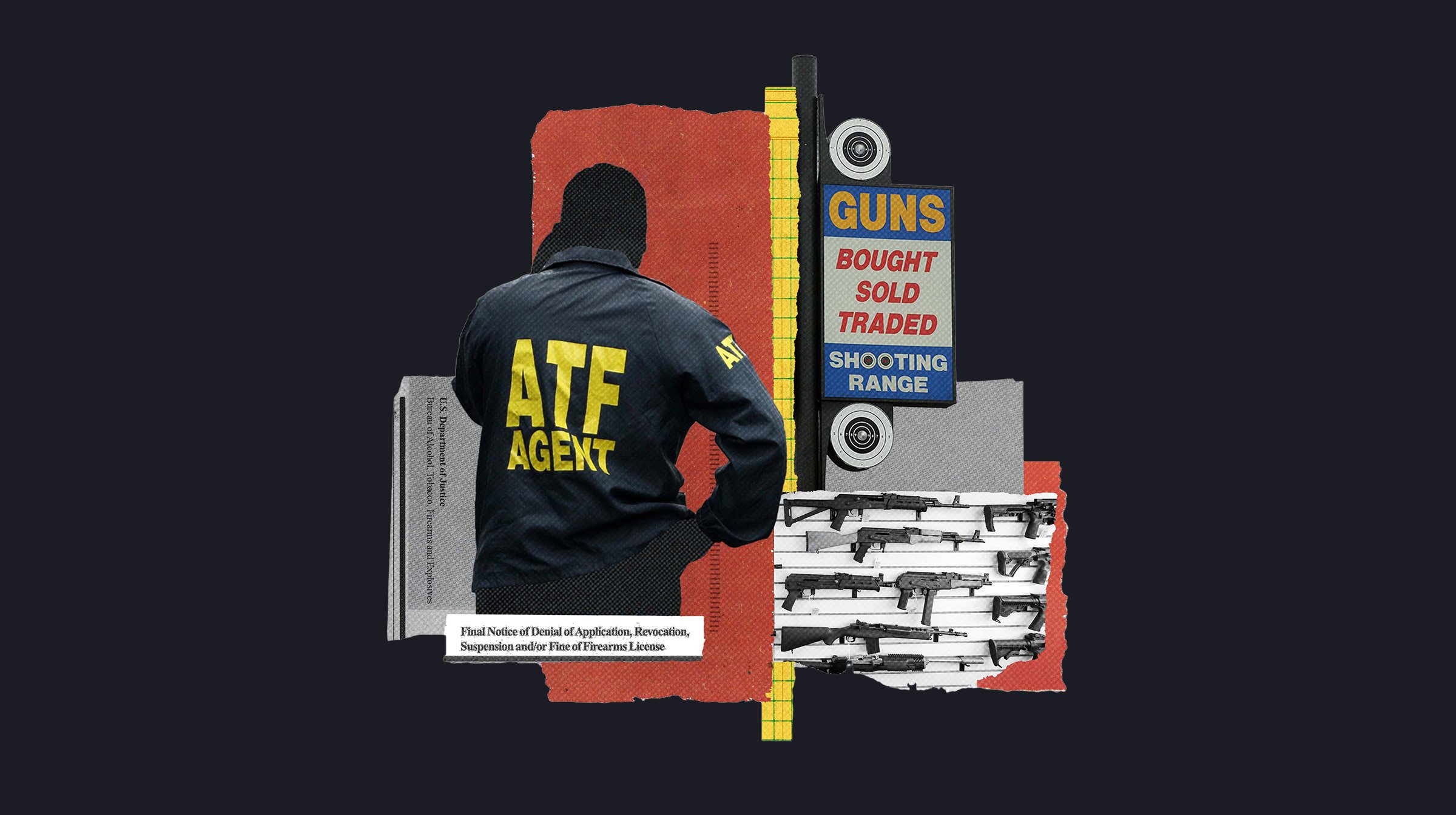The Bureau of Alcohol, Tobacco, Firearms and Explosives quietly softened its zero-tolerance policy toward lawbreaking gun dealers last year — after a wave of gun shop owners complained that the agency was shutting them down for minor infractions.
The ATF amended the policy in August, but the changes came to light only on January 16 as part of a lawsuit against the Biden administration. The new order clarifies the legal threshold that should be met before the agency revokes a gun store’s license for violations uncovered during an inspection.
Brian Luettke, a retired ATF special agent who now works as a freelance consultant for gun dealers, said the changes could lead to a decline in revocations by giving inspectors more wiggle room when deciding on penalties. “There needs to be discretion,” he said. “These changes are a move in the right direction.”
The ATF did not respond to requests for comment.
The Biden administration instituted the zero-tolerance policy in 2021. It instructed the ATF to revoke the license of any dealer found to have willfully committed any one of five serious violations, including selling a gun without a background check or falsifying business records. The policy led to an immediate spike in revocations, which climbed to record highs in fiscal years 2023 and 2024.
Gun store inspection results published by the ATF for the four months following the August change show that revocations happened slightly less often, on average, than in months during the previous two years. In December, historically a slow month for inspections, investigators revoked just six licenses — the lowest total since 2022.
Revocations could decline further under President Donald Trump, who has pledged to scrub the ATF of Biden’s fingerprints. That could spell the end of the zero-tolerance policy entirely. Congressional Republicans are also pushing for funding cuts to the agency that could interfere with its ability to conduct inspections.
The new order does not eliminate the “zero tolerance” language, but it incorporates text clarifying what behavior qualifies as “willful” — the legal standard any violation must meet to warrant revocation. It specifies that repeat violations will not necessarily be considered willful, and that inadvertent clerical errors may not amount to willful violations even if dealers understood their legal requirement to complete the forms accurately.
Copies of the amended order were obtained by lawyers for Michael Cargill, an Austin, Texas, gun store owner who sued the ATF over the zero-tolerance policy in 2022. After learning about the changes, Cargill withdrew his lawsuit on January 16.
Cargill called the new order a win for gun dealers and said he wasn’t worried that it would allow lawbreaking gun stores to skirt punishment. “If the ATF follows the letter of the law,” he told The Trace, “I’m confident things will be done right.”
Gun violence prevention advocates hailed the zero-tolerance policy as a shift away from a more lenient approach first exposed by The Trace in 2020. Our reporting showed that under previous administrations, the ATF had routinely let dealers off the hook for serious violations of federal law that supplied gun traffickers and other criminals.
But critics in the gun industry said the policy pushed inspectors to be overzealous, revoking licenses for clerical errors that didn’t jeopardize public safety.
In October, The Trace reviewed inspection records related to revocations in 2021 and 2022 and found that most of the gun dealers were guilty of serious violations like arms trafficking or lying to federal investigators. A small handful, however, had their licenses revoked for minor infractions like writing the wrong reference number on federal forms.
In roughly a fifth of the cases, we found that supervisors of on-the-ground inspectors overruled recommendations for warnings and revoked the licenses instead. These supervisors often cited the Biden administration’s zero-tolerance policy as justification.
Joshua Scharff, general counsel and director of programs at the gun violence prevention group Brady, said he views the new order as a clarification of existing policy rather than a reversal. “The tweaks to this order seem to me a way to ensure greater consistency across field divisions in their application of the current law,” he said. “This is what the policy was always intended to be.”

